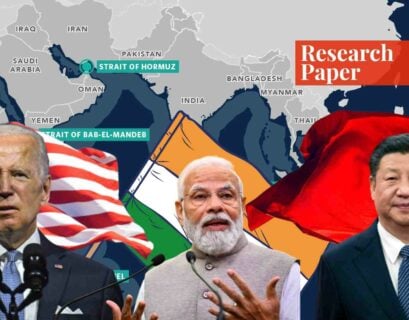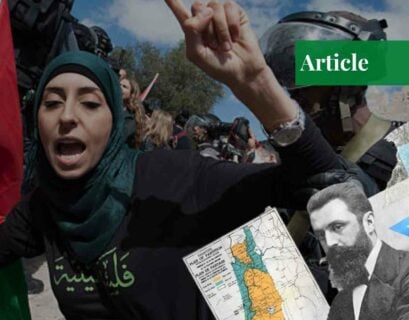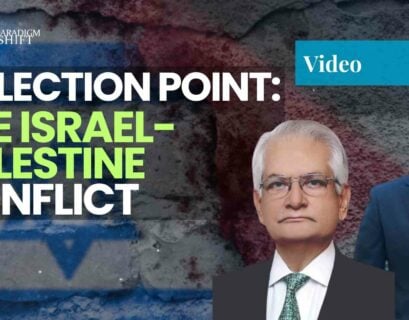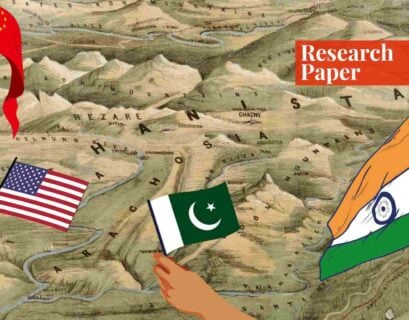The Two-Part Series
The BBC documentary is a two-part series titled “India: The Modi Question”. To hide the reality of the 2002 Gujrat riots from the public, silence the criticism, and maintain the legitimacy of the rule, the authorities have banned the screening and sharing of the documentary on social media and elsewhere. The links have also been removed from various sites on Twitter and YouTube.
However, the BBC documentary on Modi has gotten much more public attention as a result of its ban. It is important to note that since the year PM Modi came into power, press freedom in India has declined significantly, according to Press Freedom Index published by Reporters Without Borders.
The first part of the BBC documentary comprises the interviews of the victims and some journalists who consider Modi as the perpetrator of the violence. The whole “climate of impunity” was created due to the encouragement of bloodshed. The second part of the documentary shows an examination of the track record of the Modi government since its victory in the 2019 re-elections. The government has little to say about the violation of the human rights of minorities, especially Muslims, and has invoked emergency laws to avoid criticism.

By Aksi great licensed under CC BY 2.5
The documentary concludes that Modi is “directly responsible” for human and other losses. It also openly claims that the violence was directed at the Muslims with the aim “to purge Muslims from Hindu areas” and had all the “hallmarks of an ethnic cleansing.”
Crackdown
With the ban on the documentary, tensions have flared and various types of reactions have come from the public who intended to watch the documentary including students of various universities and colleges. For instance, when a group of students at Jamia Millia University planned to watch the banned movie, police equipped with weapons detained some of the students.
According to the remarks of a 20-year-old geography student, “This is the time for Indian youth to put up the truth which everybody knows. We know what the rime minister is doing to the society.” Likewise, another incident happened at Jawaharlal Nehru University when the power and internet were cut off amid the plan of watching the banned documentary.
Criticism
The opposition leader Rahul Gandhi has said that “You can ban, you can suppress the press, you can control the institutions but the truth is the truth. It has a nasty habit of coming out.” In the southern state of Kerala, the broadcasting of the program was challenged by the rival political parties’ students. When they screened the documentary, it led to many protests and rallies by pro-government workers.
India’s Foreign Ministry has called the documentary a “propaganda piece designed to push a particularly discredited narrative” and slammed it for “bias” and “a continuing colonial mindset.” In reaction to that, the BBC, in a statement, said the documentary was “rigorously researched” and involved a wide range of voices and opinions, “We offered the Indian Government a right to reply to the matters raised in the series — it declined to respond”.
Moreover, the ban on the documentary is the reflection of a broader crackdown on minorities as claimed by Human Rights Watch. Mahua Moitra, a lawmaker from the Trinamool Congress political party, said in her tweet, “Good, bad, or ugly — we decide. Govt doesn’t tell us what to watch.” Summing up, the government’s step to ban the documentary has risen many questions and has attracted much more viewers than it could do otherwise.
Hartosh Singh Bal, the political editor of Indian magazine The Caravan, who also appears in the documentary as a commentator, said, “Frankly, the ban has been pretty stupid because it’s attracted far more attention to the documentary than would have been otherwise possible.” He adds that it is now being screened across school campuses as “an act of resistance” among teenagers who previously viewed these events as a dated chapter in history.
If you want to submit your articles and/or research papers, please check the Submissions page.
The views and opinions expressed in this article/paper are the author’s own and do not necessarily reflect the editorial position of Paradigm Shift.



















